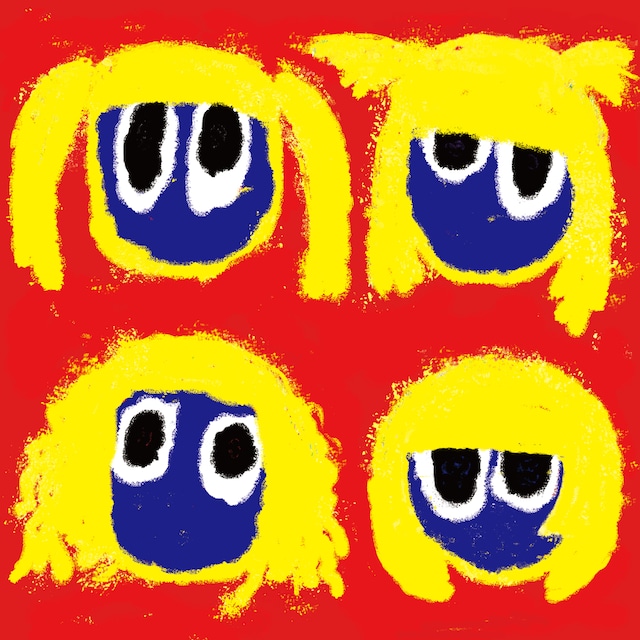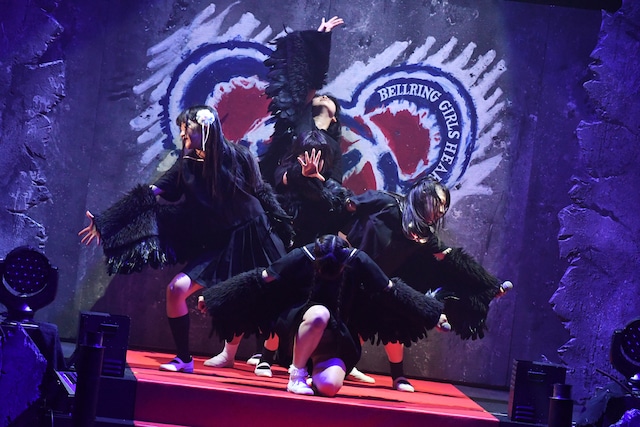Translation: The Idol Groups Known as "Music-Oriented"

The Idol Groups Known as "Music-Oriented"
Saitoh Shuichi, Take Taichi, Tanaka Koji, and Honma Shota discuss the "significance in idols"
2021.05.11 20:00
Welcome to yet another installment of our series of articles digging into different sides of the idol scene of the 2010s. Today's subject is that of the idol groups known to be "music-oriented," and this theme was set up in a round-table discussion between Saitoh Shuichi, who has worked with the likes of amiinA, among others; Take Taichi, producer of You'll Melt More!; Tanaka Koji of AqbiRec, who brought groups like THERE THERE THERES (ex. BELLRING Shojo Heart) and MIGMA SHELTER into the world; and Honma Shota, who produces tipToe. "Music-oriented" is a term originating in the 2010s and it has been used over the last decade to identify idol groups, managed by music fans, that eschew mainstream idol songs for core musicianship full of homages to Western music. We asked these 4 to discuss why so many music-oriented groups appeared during the idol scene of the 2010s.
Interview, text/Onoda Mamoru
Interview cut photos/Kondo Hayato
Translation/Lurkette
If there had been no Momoclo, I wouldn't be working with idols
──Everyone gathered here today produces an idol group that is what we refer to as "music-oriented." How do you feel about this label?

From left, Honma Shota, Take Taichi, Tanaka Koji, Saitoh Shuichi
Tanaka Koji: I've never thought of myself as being "music-oriented."
Saitoh Shuichi: I don't really pay attention to what people call me. I don't have the energy to try to be especially edgy or original. I wasn't even into idols at first, but when I saw acts like You'll Melt More! and Bellheart (BELLRING Shojo Heart) out there, I began to make the connection that idol is whatever genre you want it to be.
Take Taichi: It might be the commonality between the 4 of us here that we are all both hardcore music nerds and not into idols.
Saitoh: But I don't think we're exactly the same in that regard. There's also the music-oriented part; I don't know if you'd call a scene or a movement. I think maybe it's just that we each do whatever we want, so people call us "music-oriented."
Tanaka: The biggest influence for me is Koizumi Kyoko. She pretty early on accepted house, and she released songs like "Kogarashi ni Dakarete," which is basically just "The Riddle" (1984 single by Nik Kershaw)... Once I got introduced to her music, that's when I decided that idol means musical freedom. That's why I was never aware of being countercultural. I believe that what makes idols so interesting is that you can pull in fans of different musical genres and mix everything together. Doing psychedelic rock with BELLRING Shojo Heart started because I thought it would be more fun for the fans if we had music that no one else was doing yet. But then lots of people said we were trying too hard to be quirky, which I was pretty baffled by in the beginning.
Honma Shota: Really? I'm similar to Saitoh in that I also got started after seeing Bellheart. I learned a lot from them.
Take: You'll Melt More! got started in October of 2012, which was about 6 months after Bellheart. Back then, the most impact came from Momoclo (Momoiro Clover Z), to the extent that I might not have gotten involved with idols without them. Song-wise, "Pinky Jones," written by NARASAKI (COALTAR OF THE DEEPERS, Tokusatsu), left an extremely deep impression on me. When you compared that to the rest of the idol world at the time, there were no groups with that sort of alternative musicianship, drawing from things like indie rock and new wave. I decided in my heart that this was something that I had to do.
──Is that what made you want to create idols that would be accepted by rock fans?
Take: No, but I didn't have any intent to push boundaries, I didn't think, "I hope only people with fringe music tastes will listen to us." I wanted to create catchy pop songs that would go deep at times. I personally had the good fortune of being fond of J-Pop and Showa-era songs, and so even though I did also go for bands with cult followings, they weren't my sole devotion. I had no sense of principles about it, I still listened to things like Johnny's that everyone else listened to. I go to Fuji Rock Festival but I also check out Count Down TV, that kind of thing (laughs).
Tanaka: I'm the exact same as Take in that I also wouldn't have gotten into idols without Momoclo. The influence those girls had was indelible. If you were to ask me when the concept of music-oriented groups started, I'm sure there are different opinions, but you can't leave Momoclo out of that conversation. Hyadain (Maeyamada Ken'ichi) would throw acid house elements into their songs, and they were getting more experimental with each track. Then, around 2011 is when BiS got huge, which made that belief of "idol=whatever" so much stronger.
Saitoh: Momoclo was recommended to me by fans, like, "You should definitely check this out." I could certainly tell they had tons of energy, but I was surprised by all the creators from different genres they had gathered in one room. The world started to learn about idols again because of AKB48's big break, right? My impression that Momoclo's breakthrough afterwards expanded the number of creators and listeners all at the same time.

Saitoh Shuichi
Why did the number of music-oriented groups increase?
──To delve into what we mean when we say 'music-oriented,' there is also the question of, "Does that mean AKB48 isn't music-oriented?" Of course, you can say the same about Nogizaka46 or Hinatazaka46.
Tanaka: If the people who made music for groups like that wanted to make more niche music, they absolutely could. Simply by them doing that, it would become mainstream music. Musically, their quality is extremely high.
──That's because, depending on the group, they pick from about 300 songs to choose a single.
Honma: I think it's because they are AKB48 that they are music-oriented, in a sense. I've always been a fan of that sort of Shimokitazawa live house guitar rock. When I was pursuing that as a passion, there was a time when I did lose some of my zeal for the genre. I was in that sort of flat headspace when I encountered AKB48 and Momoclo, and even though the songs were super easy to understand, there was such a high amount of attention paid to the small details. It's two very high-quality layers. Like, "The melody is super catchy, but the chord progression is weird." That really shocked me.
──So does that mean when you pay attention to AKB48 or Momoclo when you make music?
Honma: Personally, in my music-making process, I have no expectations of how the fans will react. I can't really help it because, at the end of the day, I was never an idol fan so I have no idea how idol fans think. In the beginning, I would try to think about what idol fans would like in a song and I'd add interludes for fan chants to be added in, but it didn't turn out at all like I had thought (laughs). Fans explained to me, "We want you to make what you want, don't worry about us. We will be the ones to think of ways to get hyped up and put chants in the songs, no matter what they sound like." That's what made me realize that I had to throw out this idea that idol songs had to be done a certain way. Idol fans have the ability to make things their own, no matter what kind of song it is.

Honma Shota
Saitoh: But tipToe.'s songs are so poppy, I don't think they even see them as niche.
Honma: What makes pop, pop is that it's music that's easy to introduce to people. I was very conscious of that from the beginning. Actually, before I became an idol producer, I had the chance to see a joint performance by Maison book girl and Bellheart, and that had a significant impact on me, but I still thought that both of them were somewhat heretical even in the idol world. Once I entered this world for myself and looked at everything, though, there are so many idol groups that do as they please, and so I started to think maybe I should be a little more insistent on what I wanted (laughs). In any case, that show was amazing!
Tanaka: That makes me happy. What struck you about it?
Honma: There was this passion that I didn't see in rock band concerts, even if they were in the same sort of indies scene. That indies scene is what makes fans kind of passive towards the artist, like they're emotionally distancing themselves, and the artists perform however they want as a result. But with idols, there's this sense of unity both above and below the stage, isn't there? It's why the fans will still get excited to see acts that aren't the ones they normally follow.
Saitoh: Definitely, idol fans will always listen to at least one song even if it's not their favorite group. And there's a high possibility that you can win them over and make them a fan with just that one song.
Tanaka: Actually, we get a lot of offers to perform with bands. Our zealots make so much noise when the band comes out, the band will actually come excitedly tell me afterwards how long it's been since they performed a show that satisfying.
Honma: That's why the number of music-oriented groups increased; a big part of it is the disposition of idol fans, right? They are actively receptive. They're open-minded.
Rather than musical genre, it's based on the members
Honma: I full believe that idols are super interesting, but genre-wise it is like mixed martial arts. There are idols who came from entertainment agencies, but there are also idol groups started by restaurants and local governments and visual-kei people, as well as by music nerds like us. It's the same in combat sports: just as there are people from Muay Thai backgrounds, there are also people coming from Brazilian jiu-jitsu. It's exciting how wide the field is, with everyone coming in from different fields. Maybe that's why idol fans are so open, like, "As long as it's interesting, anything goes."
──When we say musical genre, there's jazz, hip-hop, reggae, punk, heavy metal, to list a few, and each has their own common sound. What sort of sound does "idol" have?
Honma: If you think of genre that way, idol isn't a musical genre. To say nothing of how impossible it is to pinpoint one musical trait between the music-oriented groups.
Tanaka: Yeah, I don't think there's any way to tie up all idols based solely on musical genre. What I do, is I often tell the members to look at SMAP. There's the cool Kimura (Takuya), Nakai (Masahiro) who works in talk shows, then Kusanagi (Tsuyoshi), who is stoic but is still funny... It's precisely because they have these kinds of characters permeating their culture that they can fill up Tokyo Dome with fans who are crazy about them. In short, that's the power of TV, right? Knowing how the members go about their lives adds this fun sort of documentary quality to it. So, we don't have TV as a medium, how do we get our characters to be that established? Then it's a conversation about how to make the fans get to know you at handshake and other events. Fans start to learn your story through events, like, "Oh, today you weren't feeling well," or, "You got more singing parts because of how hard you've been working." When you add that dramatic component, it creates empathy.

Tanaka Koji
Saitoh: Genre for idol owes everything to the character of the members, I completely agree. My impression of a song will completely change if a member leaves, so you can't argue that the music side is completely detached from the members when it comes to idol.
Tanaka: I actually wonder how many people there are who actually only partake in the music? Like, with Oasis, the Gallagher brothers were always fighting and you knew they didn't get along, and that's part of what made watching them perform so exciting, it was that tension, you know? It's the same as Keith Richards and Mick Jagger. Ultimately, fans watch for the humanity. Reading interviews in a magazine is just as fun as watching a TV show.
Take: I quite also agree, "Rather than musical genre, it's based on the members." Even if it doesn't really fit the intent of a discussion to determine what it means to be music-oriented (laughs). You'll Melt More! keeps going based on what it is we want to draw attention to in the world. Even if it ends up being, "If there's something in your life that's really hurting you, it's okay to run away from it." The members of the group are all either shut-ins or people who feel at odds with society, so they're able to empathize with that message and sing with emotion.

Take Taichi
We formed despite not being very good!
──I really admire how you all put so much effort in making high-quality music, but what made you think it was necessary for idols to sing it? If we consider purely singing skill, surely there are artists who are better able to bring out the best in the songs.
Saitoh: For me, it's the opposite order. I don't have idols sing the music I want to make, I decide on the members of amiinA (at the time of formation, amiina) first, and then I think of what music they should sing. To be honest, I was hesitant at first, after being asked to do it by an acquaintance. At the time, they had AKB48-style costumes, the members' moms were the ones selling merchandise, and they had maybe 5 fans at their shows. I had no idea where to go from there. And back then, You'll Melt More! and Bellheart were really the kings of kings. They were unattainable to me.

amiinA (photo: Shiga Terumi)
Tanaka: What!? Are you serious?
Saitoh: It's true! It was a shock every time I saw them perform, because the songs were so insane (laughs). There was this realization that the group had formed despite not being very good and not having much musical experience, but I was struck by their freedom. When I say I was struck, it was the same thing with tipToe. and Honma. I had no idea what the hell you were doing at first with the 3 year rule (*tipToe. has established that members stay in the group for at most 3 years due to potential school enrollments).
Honma: That part is pretty simple, it's because I wanted tipToe. to show how frantically the girls would work if they were just normal girls, not ones selected for any special career or purpose. There's no point if it just goes on forever. It's that I wanted to see how hard they could push themselves if they weren't thinking about the future, but rather the immediate 3 years in front of them.
──From a business perspective, it is better to have the same members stay with the group. You have to recoup that investment.
Honma: I mean in manga it's the same thing; it's not fun anymore if the protagonist gets too strong, right? (laughs) Or maybe it's not that it's less fun, it's that if they're too strong, from the consumer's side, that doesn't make you keep at it. It makes it hard to say, "They're working hard so I should work hard, too."
Saitoh: I understand what you're saying, but I didn't get that at all back then so it was really shocking to me.
Honma: With tipToe., it's about the story of high schoolers trying to get to Koshien. I'm not trying to show any parts afterward like going pro or moving to the major leagues. Thankfully, we have fans that have followed us to our second generation now, and I feel their response to the birth of this new second story.
About the members getting more skilled
──The Western rock homages in You'll Melt More!'s cover art really stand out. It could also be things like that that make people think of you as music-oriented.
Take: So there's this cool band called Neu! And then ESG and Suicide and tons of others, but those homages come from a place of simply wanting more people to learn about those bands, rather than me trying to be a cool music nerd. This can be done through idols. If you simply point to the musical influence, it can come off as a half-hearted derivation, so I included the references in our visuals, as well, to communicate the respect I have for our predecessors.
Tanaka: Who knew it was so deep? (laughs)
Take: I'm not going to say who, but there are some releases out there that have copied the designs of famous cover art, you know? It almost seems like it's someone playing with graphic design as a hobby. I don't like that. Definitely, You'll Melt More! paid homage to Primal Scream with our cover art, but then we also naturally referenced them in our sound, too. I bought copies of Screamadelica for the members and had them listen to it.

Cover art for You'll Melt More! "Disco Psychedelica"
──So then was their way of singing influenced by Bobby Gillespie?
Take: That, I have no idea (laughs). But I don't think it's right for the members to not even have the minimum level of respect for their predecessors, and we also have a few members who ended up thinking the band was really cool.
──A common criticism of music-oriented idols is that while the music is good, the performances are not at the same level. From a management perspective, what do you think about members improving their performance skills?
Honma: In the very beginning, that "the songs are nice but..." complaint was said about us all the time. My response was, "I mean, maybe, but skill isn't everything." (laughs) The bands I personally liked weren't all about whether they were good or not, rather, it's that frenetic vocal style where they get hoarse by how hard they're singing, that I think is so much cooler.
Saitoh: Ah, I get you. I personally think that singing and dancing should be consistent, otherwise, what's the point? "She's bad but she has charm," I don't accept that in my groups in the least. But, it's not everything. It really depends on the girls themselves, I think.
Honma: I mean, of course I want the members to get better. They work really hard at their voice and dance lessons. That's why I want them to give me all that they can wherever they are now, and if they can't give me 100%, I guess they need to work harder.
Tanaka: The early days of Bellheart, we had a lot of girls who were really awkward in performances, so it was all they could do to be chaotic and messy. Somewhere along the way we added girls who could sing rock, and suddenly everything was a disaster even if nothing else changed. It's hard for girls who are naturally skilled to do things poorly, so even when we kept doing things like spraying people with water on stage, people didn't care for it because it felt more contrived.
Honma: So it's different depending on the members?
Tanaka: Right, yeah. A lot of people thought Bellheart was a mess, but none of the members seemed to mind. There were some who fought back, though, like, "No, we're good," or "Duh, we're a mess so what did you expect?"

BELLRING Shojo Heart
──Speaking of which, there was a rumor that you couldn't make the Bellheart members rehearse.
Tanaka: That's not true at all! I hear that all the time. The results just came out kind of clumsy like that.
Take: He's always been very passionate about coaching the girls. The You'll Melt More! members saw that and were very jealous, because I have never once given them any guidance on anything (laughs).
Tanaka: Even if it looks like they're doing what the hell ever on stage, I think they always have to try to be better. I never wanted the members to think otherwise.
It's not that we disregard sales because we're music-oriented
──How do the members react to such fringe music? Do they ever say anything like, "I wanted to sing like a Nogizaka46 song, not this!"?
Honma: When I first started tipToe., a lot of the girls we found were into subculture. Our announcement was like, "We're starting an idol group. The managers are cheerful people who like photography and guitar rock," and suddenly we had a ton of people show interest. That's how we naturally ended up with lots of girls who were into rock, too, and some of them are even more knowledgeable than me. Though, once generation 1 was over and we were looking for members for generation 2, tipToe. was more recognizable as an idol group so we had a lot more of your typical idol audition applicants. That was interesting in and of itself, but I was completely okay with it because I wanted to make a new tipToe. What makes me happy is that both generations of members love their songs, so I think I'm pretty blessed in that regard.

1st Generation tipToe. (photo: Masayo)
Tanaka: These days the members have different levels of enthusiasm for the music, but in the early days of Bellheart, they were very resistant to the rock songs. There were even times when they came crying to me saying, "This isn't the kind of song I wanted to sing! This isn't what idols sing!" And she was sobbing, like 10 cm worth of snot dripping down to her chin.
Take: Things like that have happened (laughs).
Tanaka: But, that particular girl who was sobbing was the type to give it her all on stage. In the end, she agreed to that kind of music, which I was extremely happy about.
──One last question: what was your end goal with each of your projects? It seems like the idol groups people refer to as music-oriented don't seem to put much effort into sales or profit.
Saitoh: My goal for the groups I work with is that someone will end up performing at Fuji Rock. That's what I'm working towards. Even if I stop doing idol stuff for a while, if I think the girls want to have my music again, I'll figure out a way to make it happen. It's my mission in life.
Honma: I want to keep going until... like, if a tipToe. song comes on the radio, and an average middle schooler hears it on occasion and then thinks they can keep going a little longer, that's it. I guess that means tipToe. going major. That's why I'm doing the most that I can to create pop music that will reach the ears of everyone.
Take: My goal hasn't changed from when I first started You'll Melt More!, really. I want to make music that makes people who are suicidal resist that temptation. We work hard to get that message across to hopefully lots of people, but even if it's just one, that's okay, because when I see the news reports of people who have killed themselves, I feel so powerless. I'm with Honma in that to accomplish that goal, we need to sell well. Not by any means do we overlook the importance of sales because we're music-oriented.

You'll Melt More! (photo by shinz)
Saitoh: Yeah, I agree with that. I feel like I have a sense of duty, like, "I have to get this out into the world."
Tanaka: For me and the groups I manage, if we started to take sales into account more, I'd like to have bigger productions or move to a major label. I have no intention of blocking myself off from them, in fact, I'd like to pass off writing, formatting, everything. Seeing the groups I built get really strong and become major players is my current dream. I want the members to say, "Farewell, Mr. Tanaka," and see me off with a smile.
Saitoh: Ouch! Of course you'd tie everything up in the end like that, so cool (laughs).


















